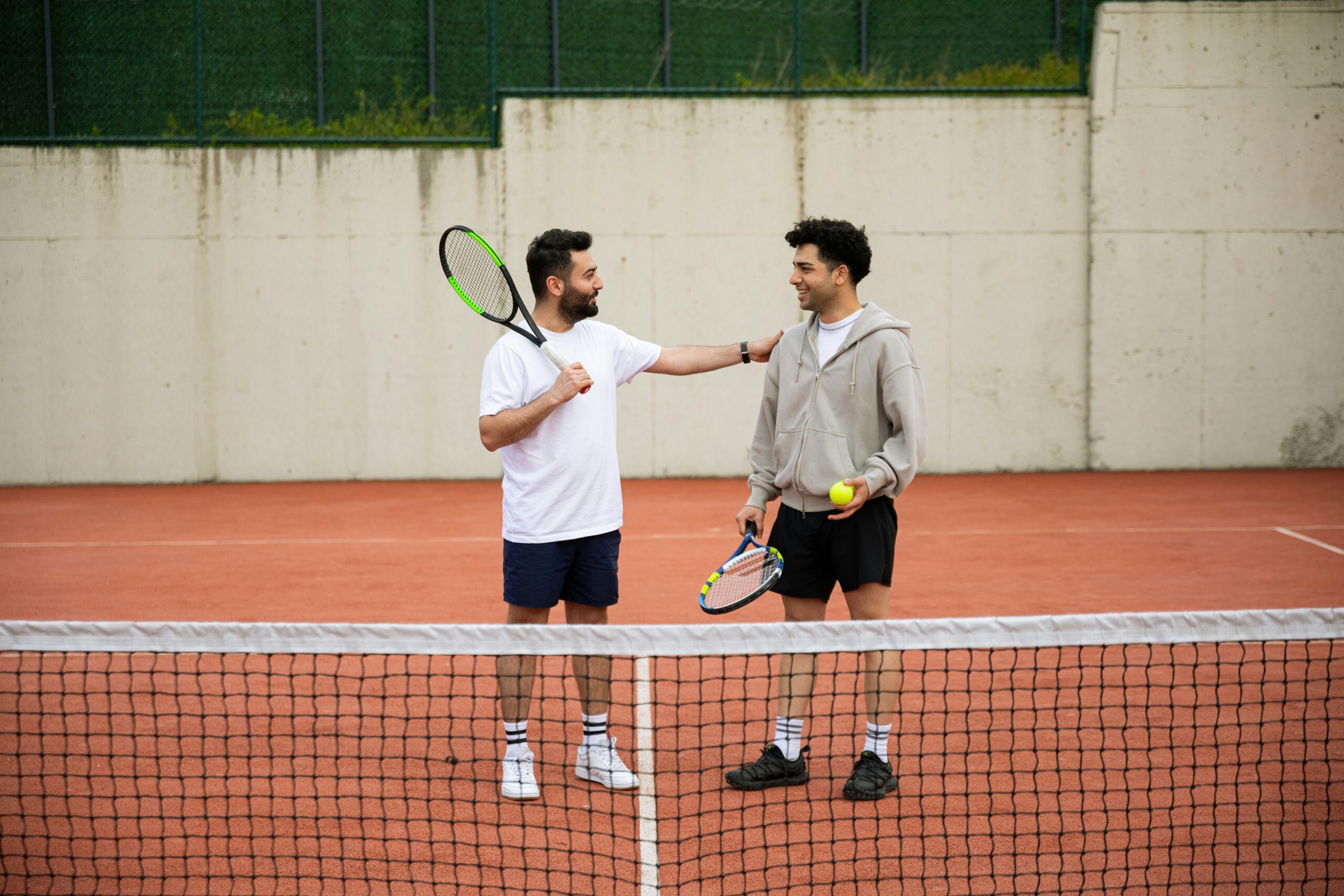
Tennis is more than a sport—it’s a lifestyle that strengthens both mind and heart. While most players appreciate the physical demands of tennis, few realize the psychological impact of the sport. The sport not only keeps you fit but also enhances emotional balance, relieves stress, and builds deep social connections.
Unlike high-contact sports, tennis blends strategy, focus, and rhythm. Every serve and rally encourages mindfulness and control. As players move across the court, they train not only their muscles but their minds. This balance between physical action and mental awareness makes tennis one of the most effective activities for overall wellness.
Tennis as a Natural Stress Reliever
In today’s busy world, stress can easily take over. Work pressure, technology overload, and daily responsibilities often leave people mentally drained. Tennis offers a natural and enjoyable way to break that cycle.
The sport combines cardiovascular activity with focused movement, which triggers the release of endorphins—the body’s natural mood boosters. These chemicals reduce anxiety, improve concentration, and promote relaxation. As players rally back and forth, the rhythmic sound of the ball and the repetition of movement create a meditative effect.
Unlike traditional workouts, tennis keeps the mind engaged and active. The constant planning, reacting, and adjusting draws attention away from stressors. In this way, the psychological power of tennis lies in its ability to provide both physical release and mental calm simultaneously.
Building Confidence and Emotional Resilience
Confidence doesn’t come from perfection; it comes from persistence. Tennis teaches this lesson better than most sports. Every match—whether won or lost—offers players the chance to grow emotionally.
When you play tennis, you face challenges head-on: a formidable opponent, a missed shot, or a bad call. Instead of giving up, you adjust and keep playing. This process develops resilience, a skill that helps in every area of life. Over time, players learn to manage frustration, remain composed under pressure, and recover from setbacks.
Each successful rally or improved serve builds a sense of accomplishment. That slight boost in confidence carries over into daily activities. Whether at work, school, or home, tennis players tend to approach life with greater optimism and mental toughness.
The Social Benefits of Tennis
While tennis may appear to be a solo sport, it’s surprisingly social. Doubles matches, local tournaments, and recreational leagues bring people together from diverse backgrounds. Shared experiences on the court often turn into meaningful friendships off the court.
Regular play helps build communication and cooperation. In doubles, for example, success depends on trust, timing, and teamwork. Partners must learn to read each other’s strengths and weaknesses, both on and off the court. These interactions nurture empathy and mutual respect.
Even casual matches help foster community. Many players meet through lessons or clubs and develop long-term friendships grounded in encouragement and shared enjoyment. The psychological power of tennis extends far beyond personal well-being—it creates a sense of belonging and social connection that’s vital for mental health.
Mindfulness in Motion
In tennis, every point is a fresh start. You can’t dwell on a missed shot or worry about the next serve; you must stay present. This focus on the “now” builds mindfulness, a mental skill proven to reduce anxiety and increase happiness.
As players concentrate on timing, technique, and rhythm, outside distractions fade. The game becomes a form of active meditation—one that requires awareness of movement, breath, and intention. The simple act of hitting a ball back and forth clears mental clutter and resets the mind.
This is where the psychological power of tennis truly shines. It combines exercise with mindfulness, offering a dual benefit that few other sports can match. The result is not just better performance on the court but also improved clarity and peace in everyday life.
A Lifelong Path to Wellness
Tennis is not limited to the young or the athletic. It’s one of the few sports people can enjoy throughout their lives. Whether you’re a beginner learning basic swings or an experienced player mastering spin serves, tennis adapts to your pace and ability.
The mental benefits of tennis grow over time. Older adults often find that the game helps maintain cognitive sharpness, while younger players learn discipline and focus early on. Because it’s low-impact yet dynamic, tennis promotes heart health, coordination, and mental agility for years to come.
It’s also a fantastic way to maintain social activity. Joining a tennis club or community group ensures regular interaction, which combats loneliness and promotes emotional well-being. Staying connected through play keeps the mind young and the spirit strong.
The Connection Between Movement and Meaning
At its heart, tennis is about more than competition—it’s about connection. Players connect with the game, with their opponents, and with themselves. Every rally symbolizes communication, and every handshake at the net represents respect.
Tennis teaches that success is not just about winning points but about showing up, staying present, and giving your best effort. This mindset not only strengthens athletic ability but also fosters character. It encourages patience, empathy, and a profound appreciation for shared human experiences.
That’s why so many people describe tennis as therapeutic. It engages the body, focuses the mind, and opens the heart. The psychological power of tennis lies in this harmony—a union of movement, mindfulness, and connection that benefits both individuals and communities.